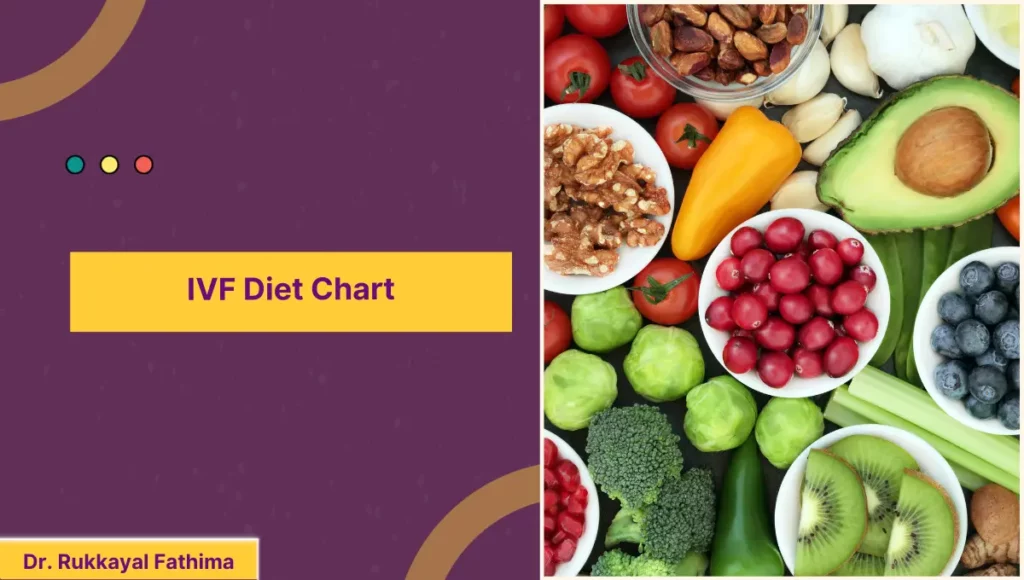Several women undergoing IVF treatments don’t know what foods they can and cannot eat during IVF treatments. Diet plays a very essential role in IVF and can determine the success and failure of the cycle.
A healthy diet not only helps their body but also balances them emotionally and improves their fertility. Let’s look at some foods women can add to their diet chart during IVF treatments.
We’ll also look at some foods they should avoid during this period. This can give them an idea of what they can and cannot eat when undergoing the treatment.
Diet and Success Rate
A healthy, well-balanced diet with all the essential nutrients is essential to increase the success rates of IVF treatments. A healthy diet also reduces the risk of inflammations and other complications you may get due to nutrient deficiency.
A healthy diet also helps improve fertility and aids in embryo implantation and further development. It can also reduce your stress and manage your weight while undergoing IVF treatments.
Best Ivf Diet Food during IVF treatment
Now that you know the importance of a healthy diet during and after IVF treatments, let’s look at some foods that you can consume during IVF treatments.
1. Fruits & nuts
Dry fruits & nuts are rich in essential nutrients like proteins, vitamins, and minerals. They are also high in selenium, a component essential to reduce chromosomal damages in the eggs.
2. Broccoli
Broccoli has a high amount of vitamin C, iron, folic acid, and antioxidants. It helps eggs mature healthily.
3. Bananas
Bananas are rich in vitamin B6 (folate). This helps regulate and control menstrual cycles.
4. Salmon
Salmon are rich in omega-3 fatty acids which can improve blood flow and maintain estrogen levels in the body.
5. Take supplements as advised by your doctor
Multivitamin supplements help you get the essential vitamins and minerals you didn’t get through your diet. Consult your fertility doctor and take a nutritional supplement to promote ovulation.
Foods to Avoid After IVF Transfer
The food you consume after embryo transfer is very important as it can either positively or negatively impact your pregnancy results. Below are some foods you should definitely avoid if you want a positive outcome after IVF transfer.
1. Limit caffeine and alcohol
Excess caffeine and alcohol consumption can affect the implantation rate after an embryo transfer. Doctors suggest couples stop smoking and alcohol at least three months before starting their IVF treatments.
2. Raw seafood
Most fish have harmful bacteria and parasites, and eating them raw or partially cooked can increase the risk of diseases and infections like listeriosis or toxoplasmosis.
3. High-mercury fish
Fish that are high in mercury are harmful to the embryo and can affect the baby’s brain development. Check the mercury levels of the fish before consuming them.
4. Processed foods
Processed foods are high in artificial sugars, fats, sodium, and other unhealthy elements. They can cause inflammation and affect your fertility. Processed and junk foods also cause hormonal imbalance and PCOS and increase your risk of type 2 diabetes and other metabolic disorders.
5. Raw eggs
Raw or partially cooked eggs contain salmonella, a bacteria that can weaken the immune system and cause food poisoning. This can lead to foodborne illnesses and affect fetal development.
Foods to Consume After IVF Transfer
Now that you know what foods you should avoid after an embryo transfer, let’s look at some foods you can consume after an embryo transfer. These foods can increase your chances of implantation and pregnancy.
1. Whole grains
Whole grains are rich in carbohydrates, fiber, fats, and other essential nutrients that are important for a successful pregnancy. You can add brown rice, quinoa, and whole-grain bread to your post-transfer diet.
2. Lean proteins
The lean proteins in meat help develop the baby’s muscles, tissues, and organs. Here are some choices of lean proteins.
- Chicken breast: Rich in protein, iron, zinc, and vitamin B without extra fat.
- Fish: Fish like salmon are high in omega-3 fatty acids and help support the embryo’s brain development.
3. Dairy products
Dairy foods can provide the mother with essential nutrients like protein, calcium, and Vitamin D. Some dairy products to include are Greek yogurt, skimmed milk, and cottage cheese.
4. Healthy fats
Healthy, monounsaturated fats are essential for your baby’s brain and heart health. These include olive oil, salmon, nuts, and seeds.
5. Fruits and veggies
Eating healthy fruits and vegetables can provide you with many nutrients like vitamins, minerals, and antioxidants that are essential for a healthy pregnancy.
Some fruits and vegetables you can include are,
- berries – strawberries and blueberries,
- leafy vegetables – spinach and kale, and
- avocado.
Diet During IVF Injections
IVF injections are an important part of IVF treatment. You will be required to take hormonal injections every day until your eggs are mature enough to be retrieved.
Your body will be undergoing hormonal changes during this period. So, it is important to maintain a healthy diet to provide your body with the nutrients and energy it needs. Here are some foods you can take during this period.
- Foods rich in protein. Protein aids in egg development and improves overall reproductive health.
- Foods rich in iron. You can try foods like lean meat and leafy vegetables.
- Foods rich in complex carbohydrates like beans, peas, whole grains, etc. This can help the body manage hormonal fluctuations.
Conclusion
IVF Doctors usually advise patients to take care of their diet and maintain a healthy lifestyle during their IVF treatments. This is because adding nutritious foods to your IVF diet can potentially increase the chances of you having a healthy and successful pregnancy.
Discuss with your doctor or your nutritionist and draft a nutritious IVF diet chart you can follow during your IVF treatment and pregnancy periods.





